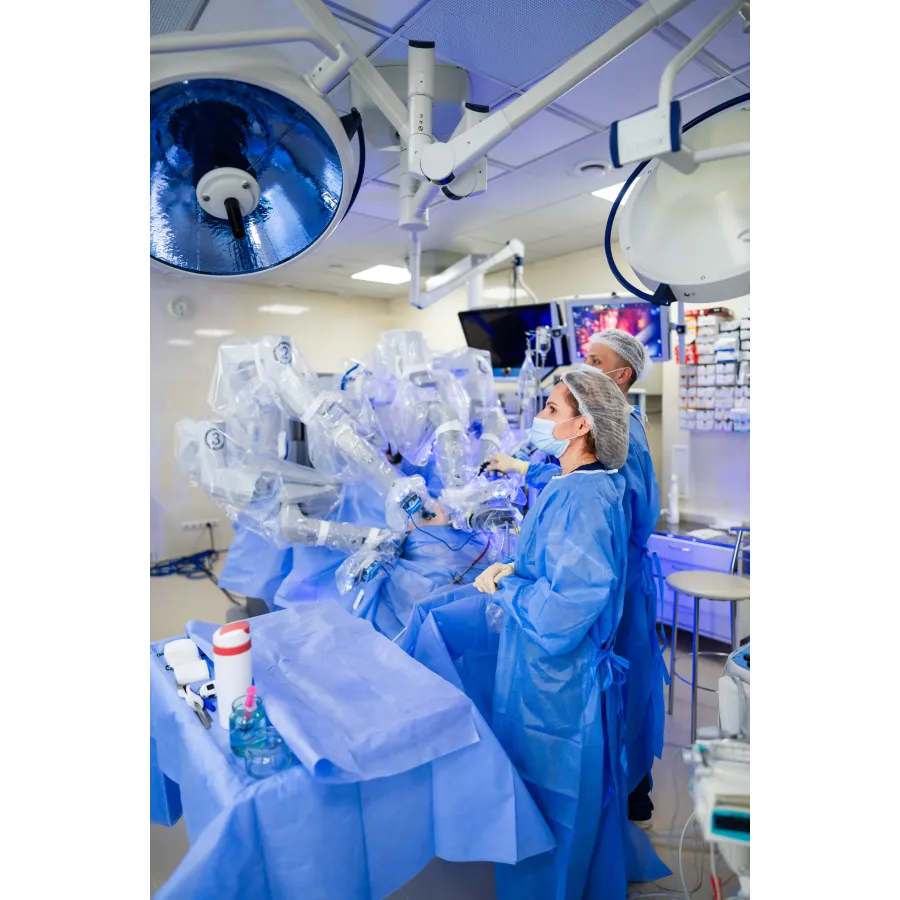Robotic Surgery
What You Need to Know
And How Advanced Gynecology Can Help
Our board-certified team of specialists and surgeons are here for you to help you get the care you need for all of your women's health needs including getting robotic surgery if you and your specialist believe it's the best course of treatment.

Why You Might Need a Robotic Surgery
- Endometriosis
- Pelvic Organ Prolapse
- Cysts Fibroids
- Bladder Disorders
- Certain Cancers

How to Prepare for a Robotic Surgery
Potential Side Effects and Risk Factors for Robotic Surgery While every surgical procedure carries certain risks, robotic surgery has been associated with positive treatment outcomes and to a degree, minimized side effects after surgery. Because of the range of treatments that can be applied robotically, a specific set of side effects isn’t easy to identify.
Key issues around gynecological surgery include bleeding and infection. While some post-surgical bleeding and discomfort is normal in the days following surgery, if you are experiencing unpleasant discharge, bleeding or pain, contact your doctor immediately.